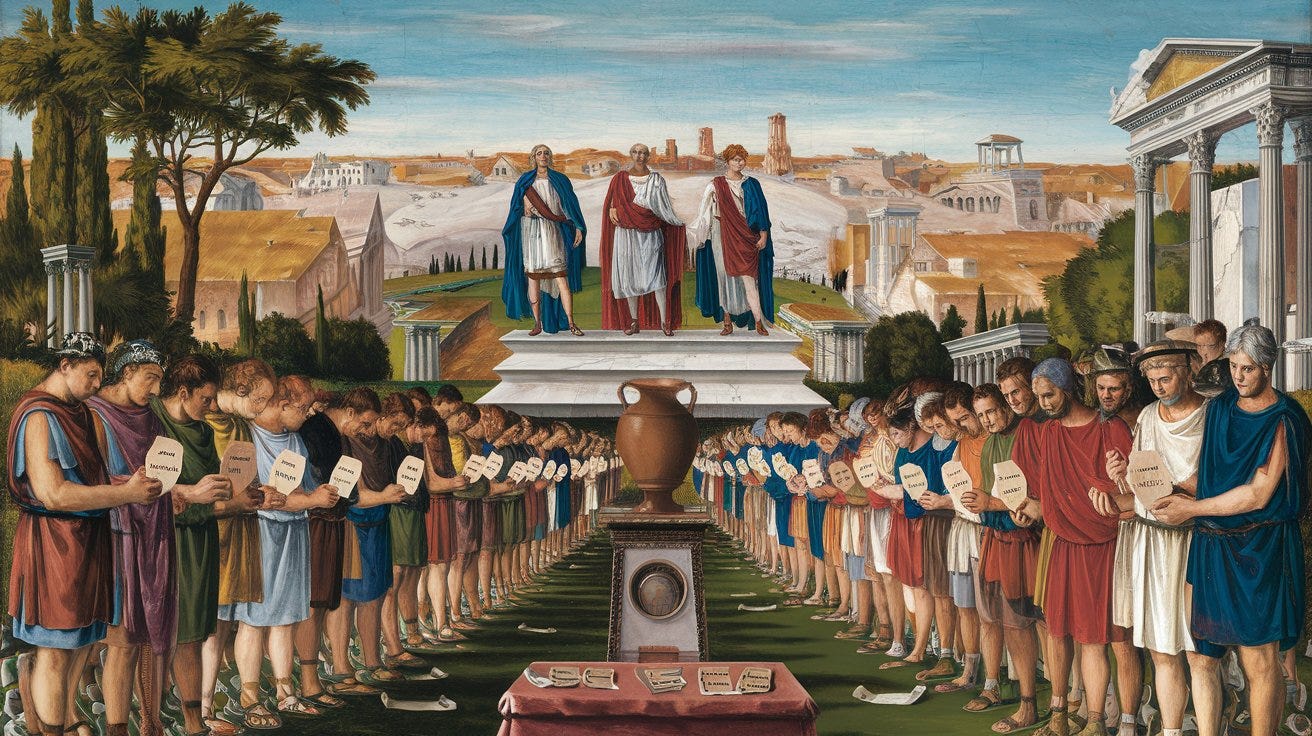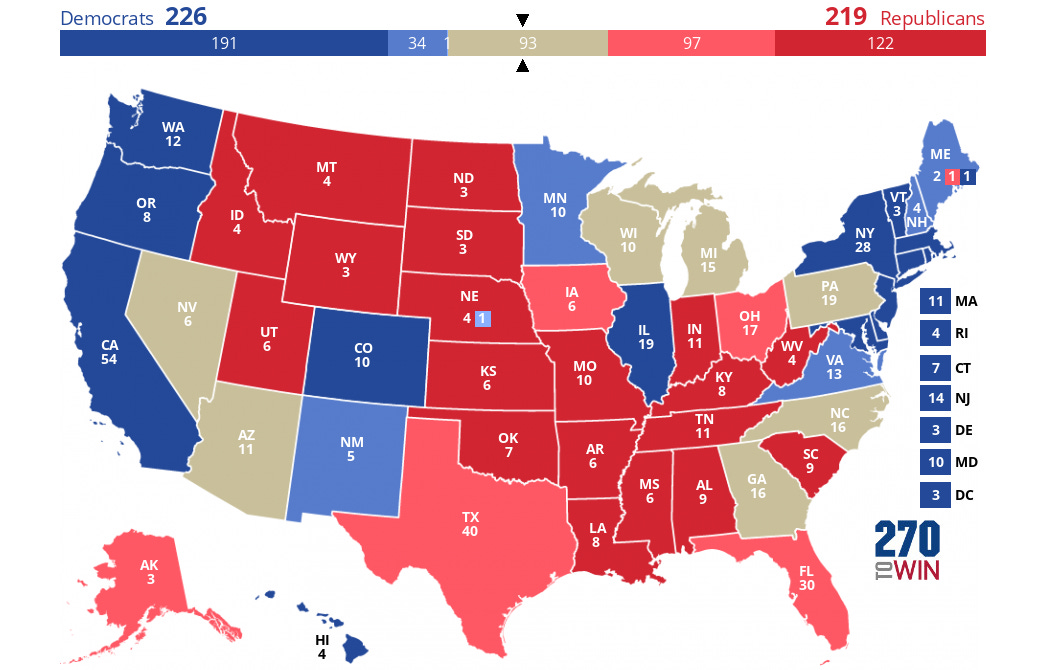Many abolitionists hated Abraham Lincoln.
They considered him a centrist who wouldn’t end slavery, and no better than his explicitly pro-slavery opponents.
The 1860 Annual Report of the American Anti-Slavery Society described Lincoln as…
“A sort of bland, respectable middle-man, between a very modest Right and the most arrogant and exacting Wrong; a convenient hook whereon to hang appeals at once to a moderate anti-slavery feeling and to a timid conservatism.”
Free black abolitionist Hezekiah Ford Douglass said:
“I do not believe in the anti-slavery of Abraham Lincoln. He is on the side of this Slave Power of which I am speaking, that has possession of the Federal Government….”
They thought Lincoln was either as bad as his pro-slavery opponents, or a lesser evil who wouldn’t meaningfully move the needle. Some abolitionists suggested they should sit the election out to punish the Republicans for nominating Lincoln instead of a hardcore abolitionist.
The fact that they were wrong about Lincoln isn’t meaningful. We’re frequently wrong about all sorts of things, and predicting the future is hard even for those who make a career of it.
Stoics go to the polls knowing outcomes aren’t what elections are about for us. If you get a good one, that’s great. But outcomes can’t reflect on us — well or poorly — because we don’t control them.
Maybe Lincoln does nothing for slaves. Maybe he frees them all. Maybe two atomic bombs will end World War II early and save millions of lives, or maybe it’s one more tragedy atop an endless pile of them.
Caesar vs Pomey
Hitler vs Hindenburg
Bonaparte vs Cavaignac
We can only have firm opinions about these contests in retrospect. Since we’ll never experience the counterfactual, even these impressions are guesses.
So if outcomes are all shadows and dust — morally speaking — what should we care about when we go to the polls?
The One Thing to Care About When You Vote
Stoics believe something most people balk at — that virtue is the only thing that matters.
Stoics try to act in alignment with wisdom, justice, courage, and moderation. You can’t bring virtue to things outside your control (results), but you can always act virtuously in the spheres you have control.
This is not a left-wing or a right-wing thing. Greens, Libertarians, Republicans, and Democrats can all be virtuous and come to different conclusions. But whether they go and vote, and how they vote, is inextricably linked to virtue, and they won’t take that lightly.
Stoics will do their best to observe candidates’ character, history, and policy positions and judge which is likely to serve the country best, while also doing their best to distance themselves emotionally from the result of the vote and what the candidate later does.
The Stoic philosopher and emperor Marcus Aurelius said:
“You must build up your life action by action, and be content if each one achieves its goal as far as possible—and no one can keep you from this.”
Casting a ballot is part of that. It’s in your control, and quite important as a citizen of a country and as a human being in a cosmopolis. The vote matters, so Stoics will attempt to do it well.
As we use our gift or reason to figure out how best to cast our ballots in line with virtue, we might want to keep a few things in mind.
Delusional False Equivalency:
It’s en vogue to claim a false equivalency suggesting all candidates are the same so voting isn’t rational. The old boys club, the Illuminati, or the deep state already have it in the bag. It’s all rigged, so why support this farce?
It’s not a new argument.
The abolitionists said this during the 1860 election, but it was clearly untrue. Lincoln’s opponents were pro-slavery and he was an equivocal moderate. The worst you could say of Lincoln — from an abolitionist perspective — was that he was the lesser evil. There was no reason to suspect he’d crusade to free the slaves, but there was every reason to think he’d do more for them than his opponents.
Yet many abolitionists didn’t want to get their hands dirty voting for a lesser evil who’d only seek marginal improvements. None of the candidates went far enough, so they said “they’re all the same.” Reason would have defeated this line of thinking.
If you’re trying to be virtuous then you care about justice, and a just person doesn’t consign their nation to being run less well than it could be, even if the difference is marginal.
Do you care about the economy? Foreign genocides? Abortion? The country’s debt? Healthcare? Housing Affordability? Our Candidates may be light on policy specifics, but they’ve said enough for someone to find their lesser evil in each category.
Yes, fanatics will go to the polls and experience the joy of voting for their dream candidate. The rest of us will face reality and decide who the lesser evil is.
Punishing Parties:
It’s fine to consider America’s first-past-the-post electoral system a creaking anachronism, but does it follow that withholding votes from the system could be virtuous? Could this plausibly improve the situation? Might enough denied votes convince parties to choose candidates more aligned with you in the future?
It’s a hard topic to study, and my assessment of the research literature is that there’s no clear consensus, but it’s not an absurd notion.
But this possibility must be weighed against the chance of denying victories to lesser evil candidates. I’d suggest only people in the dark red and blue states could consider a no-vote while remaining in line with virtue. To do so in the toss-up and light-shaded states is tantamount to believing all the candidates are the same.
Preparing To Vote:
Voters are easily manipulated, and it’s up to us to be the wise person in a foolish country.
We need to search for the labels we’ve let into our identity — the things that cause cognitive dissonance and stupidity — and do our best to cast them out.
A better world is built brick by brick, action by action, vote by vote. The same thing can be said of virtue.
So make your assessment. Hold your nose if you have to. But go and vote.
Thanks for reading Socratic State of Mind.
If you liked this article, please like and share it, which helps more readers find my work.






As someone who studied political science and has spent my entire career in campaigns and government administration: there is no such thing as a protest vote.
I support protest, but it’s just not possible to do it in the context of voting. Staying home isn’t protest, writing in a candidate isn’t protest, voting third-party isn’t protest.
Why? Because protest has to persuade someone with power to do what you want, and the only two outcomes from “protest” voting are that you keep you keep the person you want to persuade out of power, or they win without you.
There is no such thing as voting “against” anything. Most people stay home and that is never ever taken as a mark against the winner or the system. The only thing — the ONLY thing — you can actually do on election day is vote FOR something. Everything else is mind games and delusions.
Great insights and empowering.